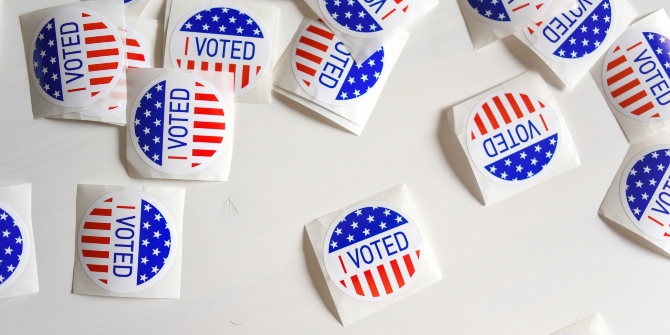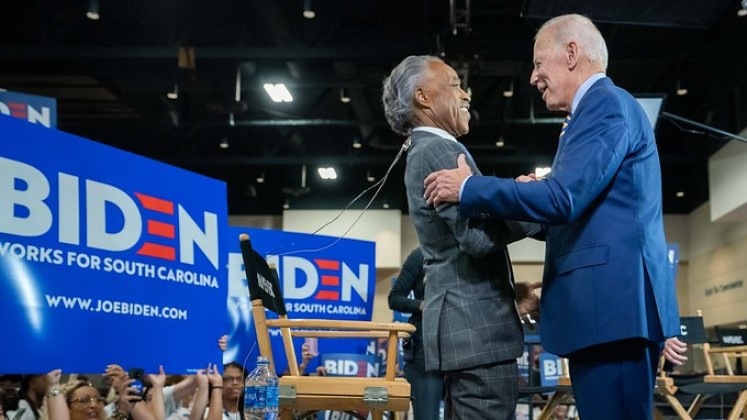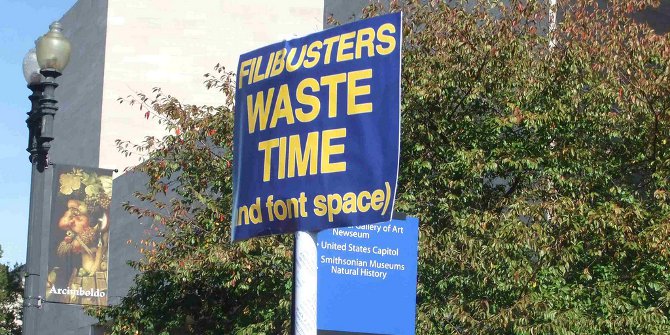 Last weekend allegations surfaced over undisclosed ties between Dr Willie Soon, of the Harvard-Smithsonian Center for Astrophysics, and corporate interests from the energy industry. Dr Soon is now under investigation, and a Democratic member of Congress has used it as an opportunity to suggest climate change academics who have been invited by Republicans to give evidence at Congressional hearings may also have hidden links to the fossil fuel industry. Bob Ward writes that these allegations are based on partisanship rather than evidence, and that academics from all disciplines should fight attempts by Congressional members from both sides of the aisle to stifle academic freedom.
Last weekend allegations surfaced over undisclosed ties between Dr Willie Soon, of the Harvard-Smithsonian Center for Astrophysics, and corporate interests from the energy industry. Dr Soon is now under investigation, and a Democratic member of Congress has used it as an opportunity to suggest climate change academics who have been invited by Republicans to give evidence at Congressional hearings may also have hidden links to the fossil fuel industry. Bob Ward writes that these allegations are based on partisanship rather than evidence, and that academics from all disciplines should fight attempts by Congressional members from both sides of the aisle to stifle academic freedom.
There has been a further dismal development in the way in which the United States Congress fumbles with the issue of climate change. Raúl Grijalva, an Arizona Democrat from Arizona who sits on the Committee on Natural Resources in the House of Representatives, has written to the employers of several climate researchers to question whether they have undisclosed funding from the energy industry. The Congressman’s correspondence appears to have no factual basis, but has been triggered by the revelations last weekend about Dr Willie Soon of the Harvard-Smithsonian Center for Astrophysics. A front-page article in ‘The New York Times’ suggested that Dr Soon had failed to disclose in some of his papers published in academic journals since 2008 that he had received funding for his research from Southern Company, an electricity generator. The Inspector General of the Smithsonian Institution has launched an investigation into the allegations.
Dr Soon has been the author of a number of journal papers, heavily promoted by climate change ‘sceptics’, which have attempted to cast doubt on the evidence that human activities is driving the rise in global average temperature. Perhaps his most controversial paper was published in 2003 in the journal ‘Climate Research’, in which he and co-author Sallie Baliunas suggested that the 20th century had not been unusually warm, even though the Third Assessment Report of the Intergovernmental Panel on Climate Change in 2001 concluded that the 1990s were the warmest decade in the Northern Hemisphere for at least 1000 years. The editor-in-chief of the journal, Hans von Storch, resigned in protest, declaring that the publication of the paper was “an error” and that the review of it had “utterly failed”. Dr Soon’s most recent paper, co-authored with the flamboyant Lord Monckton of Brenchley and other ‘sceptics’, was published in a Chinese journal last month, and claimed that the projections by the IPCC of future warming are too high. However, researchers have pointed out that the paper is fundamentally flawed.
Doubts about Dr Soon’s articles have been expressed for some time, and it was already known that he had previously received funding from ExxonMobil and other energy companies. However, Representative Grijalva has used this case to try to undermine the credibility of other researchers who have been invited by Republicans to give testimony in Congress. Among those now under suspicion is Dr Roger Pielke Junior of the Center for Science and Technology Policy Research at the University of Colorado. Dr Pielke has attracted controversy for his views on climate change, and I have clashed with him many times in the past. But he has been a pioneer in the study of trends in the economic losses due to weather-related disasters, and invented a method for quantifying the impact created by the rising numbers of homes and businesses across the world that are being built in areas exposed to extreme events.

Dr Pielke’s method has been used by my colleagues at London School of Economics and Political Science to show that when this increase in exposed properties is taken into account, no statistically significant rise in global economic losses due to weather events since 1980 can be detected. Dr Pielke has claimed that this means that rising greenhouse gas levels are not yet having a measurable impact on economic damage from extreme weather, although I and others have pointed out that the effects of climate change may be masked by improvements in the resilience of properties. Nevertheless, Dr Pielke publishes his research results and conclusions in peer-reviewed journals and it is right that policy-makers consult him on this issue. Yet in his letter to the President of the University of Colorado, Representative Grijalva singles out for criticism Dr Pielke’s statement to a Senate Committee in July 2013 about the current lack of conclusive evidence for a link climate change to trends in disaster damage. The Congressman cites it as justification for calling into question Dr Pielke’s “impartiality”, and consequently seeking details about his financial interests.
What is clear from the letter is that Representative Grijalva has absolutely no evidence that Dr Pielke has received money from the energy industry, or that he has failed to disclose his sources of funding. If the Congressman had visited the website of the Center for Science and Technology Policy Research, he would have found annual reports that list all of the funding sources for its researchers, including Dr Pielke.
For his part, Dr Pielke has published a blog in which he states that he has “no funding, declared or undeclared, with any fossil fuel company or interest”, and describes the Congressman’s actions as “a politically-motivated ‘witch hunt’”. It is hard to disagree with his conclusion. Depressingly, this is not an isolated incident in a country that champions the right to ‘free speech’, but which allows lawmakers to persecute academics with whom they disagree.
Professor Michael Mann of Pennsylvania State University has been the subject of quite disgraceful campaigns by more than one Republican politician because of the perceived importance of his contribution to documenting the overwhelming evidence for man-made climate change. His book, ‘The Hockey Stick and the Climate Wars’, gives a shocking inside account of how he has been targeted by members of Congress simply because they do not like the findings of his research.
It is important that academics in all disciplines and from all countries stand shoulder to shoulder with Professor Mann and Dr Pielke to collectively fight off these disreputable political assaults on academic expertise and freedom.
Please read our comments policy before commenting.
Note: This article gives the views of the author, and not the position of USApp– American Politics and Policy, nor of the London School of Economics.
Shortened URL for this post: http://bit.ly/1BmOsec
_________________________________
About the author
 Bob Ward – LSE Grantham Research Institute on Climate Change and the Environment
Bob Ward – LSE Grantham Research Institute on Climate Change and the Environment
Bob Ward is policy and communications director at the ESRC Centre for Climate Change Economics and Policy and the Grantham Research Institute on Climate Change and the Environment at London School of Economics and Political Science.






